Many people find the sound of rain outside comforting, but if you’re not one of them and you find it disrupting, you’re probably looking for ways how to stop rain noise on windows.
Heavy rain hitting glass will inevitably cause a loud noise as glass isn’t soundproof, yet there are ways to muffle these sounds so you can fully relax or focus without distraction.
No matter if its skylights or standard windows causing the issue, here are 10 ways to stop that rain noise from disturbing you any longer:
1. Install Awning Blinds
These are essentially weatherproof fabric blinds that are designed to be fitted on the outside of your windows to prevent the sound of rain hitting the glass.

They’re designed to filter the rays of the sun to prevent them from hitting the glass and heating up the room too much.
At the same time, the awnings will cover up the glass and provide a softer surface for the rain to land on, which will lead to muffled sounds from the outside.
2. Use Shutters
Shutters are a pricier option but one of the most effective solutions for homeowners searching for how to stop rain noise on windows.
Available in a range of materials and designs, they can add improved aesthetics to the outside of your home as well as better insulation.
In a similar way to awnings, they provide a separate surface for the rain to land on, which is already quieter than glass.
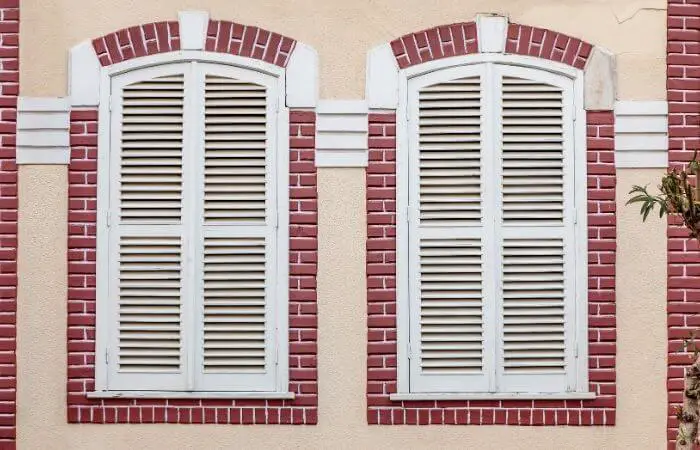
Then there’s a gap of air between the window and the shutter, which helps reduce the amount of sound that can get through.
You can find electrically operated options to ease the process of opening and closing them on a daily basis to allow natural light in.
If you choose standard ones, keep in mind that you’ll need to open and close them or the light in your home will be compromised.
If it’s raining during the day, you’ll have to sit in the dark or switch the lights on if you want to block the rain noise.
Wooden shutters feature sound dampening properties, so choose these over other materials such as metal.
Shutters with built-in thermal insulation are also a good choice as this will help with soundproofing.
3. Use Sound Reducing Glazing
These days, it’s unlikely you have single glazed windows, but if you do, you’ll hear every drop of rain that lands on them.
Double glazing, and even better, triple glazing, add extra layers for noise insulation.
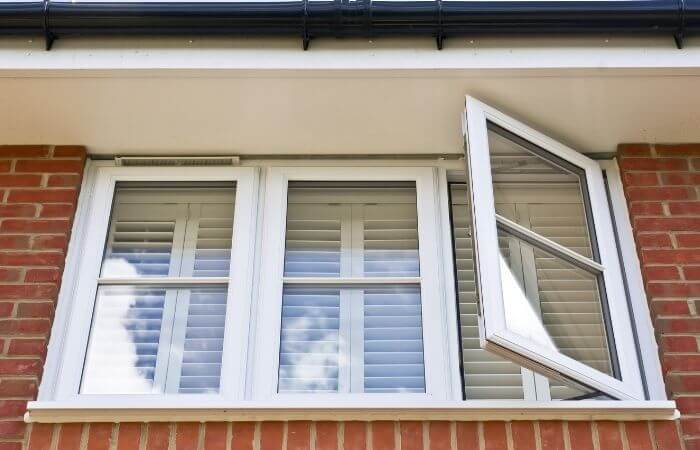
Not only do they feature extra panes, but there are also gaps between them filled with gas for drastic noise protection.
High-quality double and triple glazing will feature thick panes and wide gas-filled gaps for improved insulation properties.
Look for products with foam window spacers over metal spacers, as these will dampen noise better.
Alternatively, look into noise-canceling windows, which are specifically designed to prevent noise from entering from the outside, including rain.
While this option is pricey, it’s well worth it if you suffer from noise pollution in your home.
Not only will they block out rain noise, but many other bothersome sounds from outside, such as traffic, will be muffled too.
The value of your home will increase, and it will be more energy-efficient at the same time.
4. Check the Installation and Fitting
It’s not only the window itself that lets the sound of the rain on the outside in.
The installation of your windows or your extension plays a big role in preventing noise.
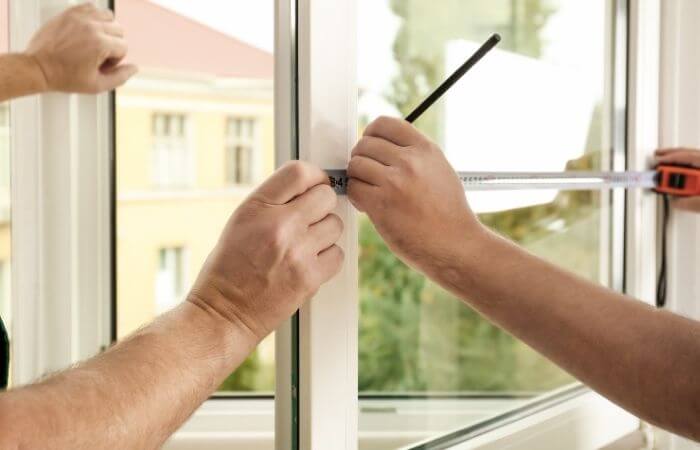
As the rain hits the outside of your home, the windows themselves won’t necessarily let the noise travel through, but any gaps in the fitting will. Rain noise can actually be exaggerated by voids and loose fittings.
To soundproof your windows you should ensure that they are fitted and sealed securely all the way around to prevent any rain noise from getting through to your room.
Check for gaps, wrong angles, or breaks in the seal and repair them. This will also help increase energy-efficiency.
5. Hang Insulated Curtains and Blinds
While soundproof curtains or insulated curtains don’t make a huge difference when it comes to heavy noise pollution, they can be quite effective with minor sounds such as raindrops on standard windows.
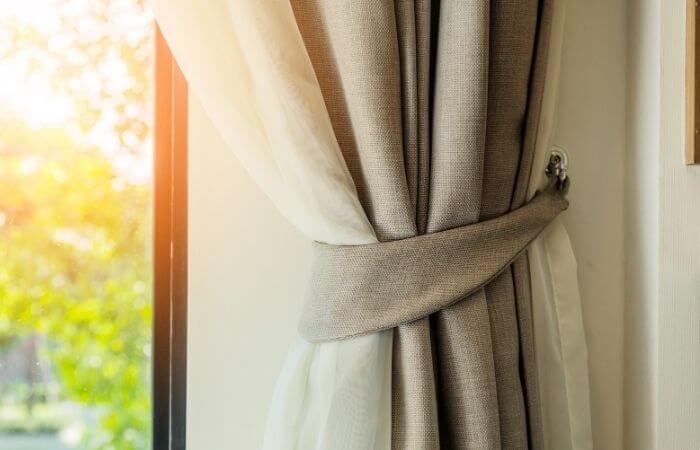
Thick curtains will dampen sounds from outside as well as provide thermal insulation to a room.
On skylights and extensions with roof windows, honeycomb blinds and insulating blinds can be effective against rain noise.
They’ll also make your space cozier and warmer during the colder months.
6. Apply Plastic Window Film
Window soundproofing film is a simple solution to your outdoor noise issues such as heavy rain.
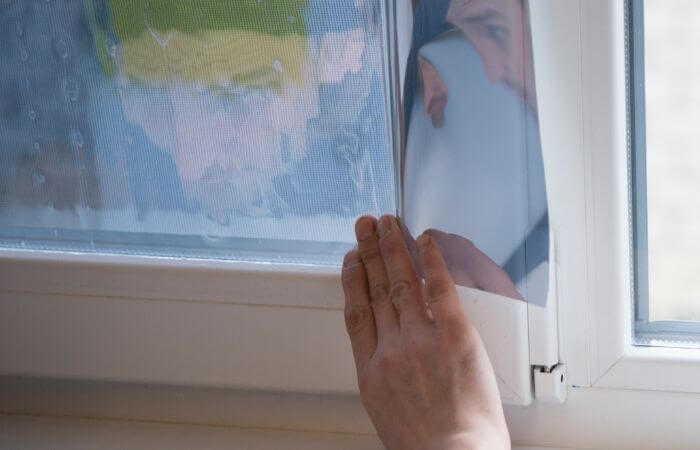
It’s easy to install on your window, can be used with different types of windows, and is clear (unless you want opaque, which is available) to allow sunlight in.
The film sticks on your window and provides significant noise and heat insulation to your room.
If you can’t get your hands on professional-grade noise blocking window film, a good alternative is clear mass loaded vinyl.
7. Add An Acrylic Layer To the Window
If you can’t afford to replace your windows, a good backup option is to add an extra layer of acrylic.
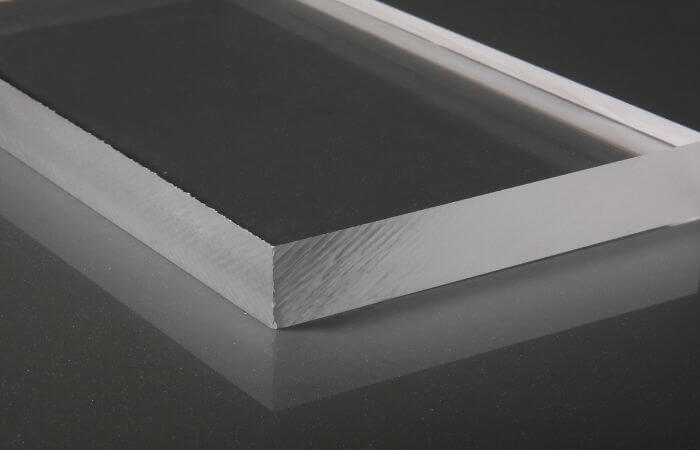
You’ll need to install a metal frame on top of the original window frame and then attach the layer of acrylic using small magnets.
This method works best alongside acoustic-grade glass and is ideal because it still allows natural light to shine through.
8. Use Fiberglass Insulation
This is a good soundproofing option for skylights but it works with all types of windows.
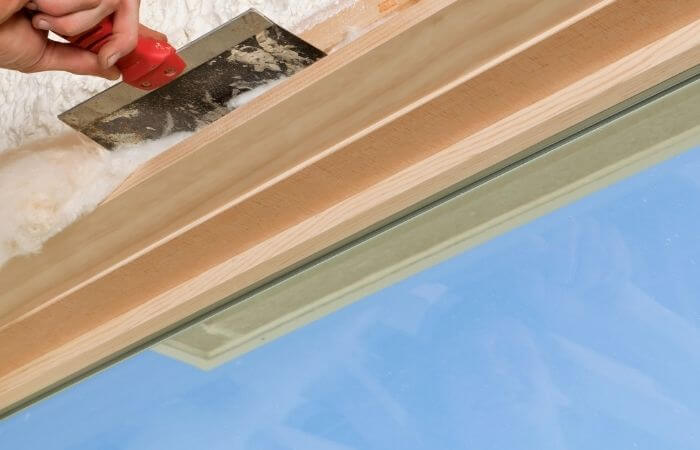
As with many of our methods, it’s even better if you pair it with double or triple glazing.
You can purchase fiberglass insulation at a hardware store, and you’ll find small rolls of the material which are ideal for window projects.
You’ll have to remove the frame and cut the fiberglass, so it fits snuggly with space for the frame.
9. Build Your Own Blinds
A cost-effective solution that can make a huge difference is DIY blinds for your windows.
They’re relatively simple to make by yourself at home and will dim the sound of rain on the outside of your window.
Using a soundproofing material, such as mass loaded vinyl, cut it to size (slightly larger than the window), and glue your fabric of choice to one side. Next, get a blind roller and glue the material to it.
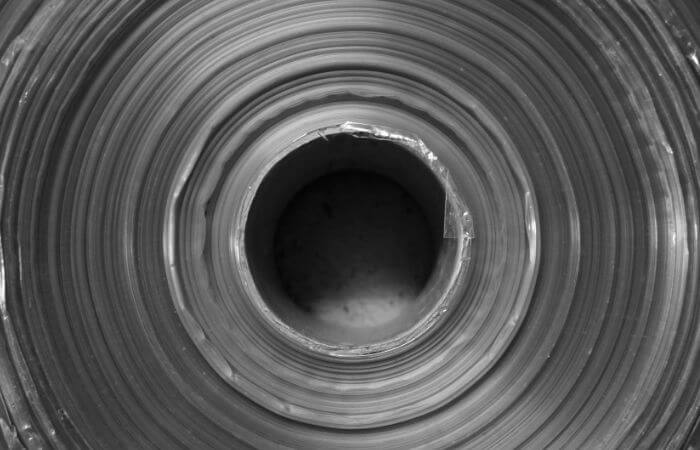
Once dry, you can hang the blind on the top of your window, and voila, your new blind is ready.
Ensure to choose a heavy-duty blind roller, as soundproofing materials such as mass loaded vinyl are pretty heavy.
The blind will double up as a blackout blind also, so it will make sure you can enjoy a lie-in no matter the time of day or the weather outside.
10. Alternative Options
While the next methods we offer you might not necessarily fix the issue, they can help deaden the noise of rain in the short term and are easy to carry out.

These options include:
- Use earplugs: These are ideal to use at night until you can sort out a long-term solution for how to stop rain noise on windows in your room. Place them in your ear before you go to bed, and you should sleep like a baby.
- Rearrange the room: This will probably only make a difference if your room is large. But moving your bed, sofa, or desk as far away from the window as possible, it will make a difference to the noise you hear. Alternatively, you can place large pieces of furniture over the window or close to the window to absorb some of the impact sound created by rain.
- Headphones: Premium headphones these days feature noise-canceling technology. You can wear them while working or relaxing to enjoy peace and quiet or play some chill-out music to block out the sound of the rain.
Rain Rain Go Away
The sound of rain has been proven to help us sleep and boost arithmetic ability, but this isn’t for all people, all the time.
How the noise of rain on the windows affects us depends on many things, including the intensity of the rain, the location of the windows, the type of windows, and the time of the day.
Hopefully, one or more of our methods above on how to stop rain noise on windows will be helpful for you to reduce the disturbing sound of heavy rain when it’s unwanted.
Even better, try to combine more than one of the options to make sure your home is quiet no matter the weather.
As an Amazon Associate I may earn a small fee from qualifying purchases at no extra cost to you. This helps us run the site, so thanks for your support!